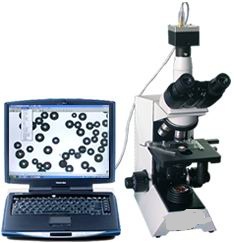Difference between revisions of "Particle Analyzers"
Jump to navigation
Jump to search
(Created page with "Category:Analyzing{{Knoppen}} <noinclude><!------------------------------------------------ * READ THIS FIRST * Only edit this page if you can improve the content. * Imprope...") |
|||
| Line 7: | Line 7: | ||
* Please start editing this page after the /noinclude | * Please start editing this page after the /noinclude | ||
* -------------------------------------------------></noinclude> | * -------------------------------------------------></noinclude> | ||
This | [[File:Particle analyzers.jpg|thumb|right|Particle Analyzers]] | ||
'''Particle Analyzer''' is a device that separates the particles into multiple groups. This would separate the particles into denser and lighter pieces to test the air flow. | |||
Using laser diffraction methods in particle analyzer designs provides a high operating efficiency in the determination of particle size distribution, and other statistical characteristics of powders, emulsions and suspensions. The light scattering technique combined with simultaneous detection and rigid software algorithms provide a virtual real-time detect-to-display speed. In effect, scanning speeds have increased as analysis times have reduced; this ends in a cost-savings particularly in quality control applications. | |||
Revision as of 21:58, 16 December 2012
Particle Analyzer is a device that separates the particles into multiple groups. This would separate the particles into denser and lighter pieces to test the air flow.
Using laser diffraction methods in particle analyzer designs provides a high operating efficiency in the determination of particle size distribution, and other statistical characteristics of powders, emulsions and suspensions. The light scattering technique combined with simultaneous detection and rigid software algorithms provide a virtual real-time detect-to-display speed. In effect, scanning speeds have increased as analysis times have reduced; this ends in a cost-savings particularly in quality control applications.
